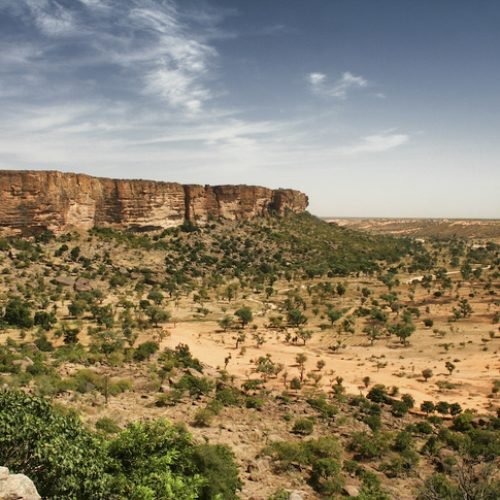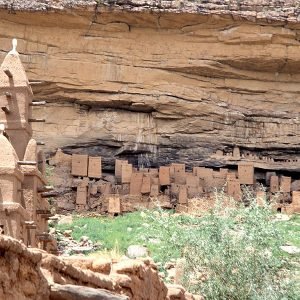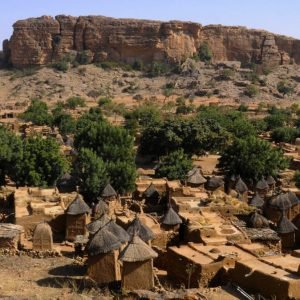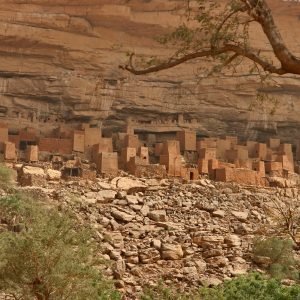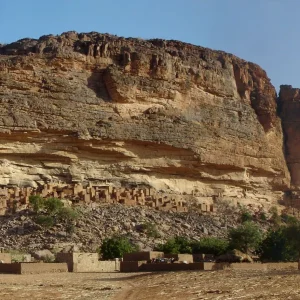The Bandiagara Cliffs, also known as the Dogon Country, are located in Mali, West Africa, and were designated a UNESCO World Heritage Site in 1989. This spectacular landscape is characterized by a series of steep cliffs and plateaus stretching for some 200 kilometers.
Dogon country is renowned for its unique culture and strong traditional identity. The Dogon are an ethnic group who have lived in this region for centuries, preserving their customs, religion and traditions. The Bandiagara cliffs play a central role in the life of this community, offering natural protection against invasions and serving as a refuge and home for the Dogon.
In addition to their cultural significance, the Bandiagara cliffs also boast magnificent natural scenery. The craggy peaks offer panoramic views of traditional earthen villages and agricultural terraces below. Visitors can stroll along paths that wind along the cliffside, discovering banco houses, granaries and other architectural structures unique to the Dogon.
The Dogon region is also known for its rich cultural life. Traditional ceremonies, dances, masks and religious rituals play an important part in the daily life of the community. Visitors often have the opportunity to witness these cultural performances and learn more about Dogon customs and beliefs.
However, it should be noted that tourism in the Bandiagara Cliffs region must be respectful and responsible. It is important to take into account local traditions and sensitivities, preserve the natural environment and make a positive contribution to the local economy.
In short, the cliffs of Bandiagara, or Dogon country, offer visitors a unique immersion in a fascinating culture and landscape. Ancestral traditions, panoramic views of the cliffs, and the hospitality of the Dogon people make this destination an unforgettable experience for travelers in search of cultural discovery and natural beauty.

